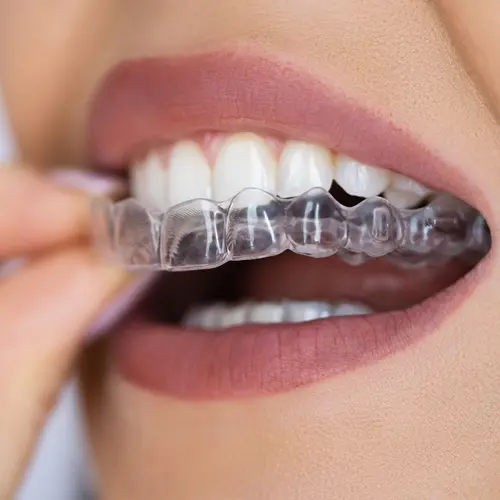What Is Burning Mouth Syndrome?
Burning mouth syndrome is the name for burning pain in your mouth that doesn’t have a known cause. Most often, the pain is on the tip of your tongue or roof of your mouth. But sometimes it's in the front of your mouth or on the inner part of your lips. It often lasts for many years.
About a third of people who have burning mouth syndrome say it started after some kind of dental work, an illness, or a course of medication. But most can't link it to any unusual event.
Symptoms of Burning Mouth Syndrome
If you have burning mouth syndrome, your mouth can feel like you just drank hot coffee or had some hot soup. It feels different for each person. In general, burning mouth syndrome symptoms can include:
- Burning feeling on the tongue, roof of the mouth, gums, inside of the cheeks, and in the back of the throat, which may be relieved with eating or drinking
- Numbness or tingling of the tongue, which can come and go
- Trouble swallowing
- Dry mouth
- Sore throat
- Changes in taste, such as a bad taste of metal in your mouth
The pain may get worse throughout the day. If the burning doesn't go away or gets worse, see your dentist or doctor.
Causes of Burning Mouth Syndrome
Burning mouth syndrome is grouped as primary or secondary, depending on the cause.
Primary burning mouth syndrome
The burning pain can’t be explained by a lab test or other health condition. You might also hear primary burning mouth syndrome called idiopathic burning mouth syndrome. Doctors think the cause could be damage to nerves that control taste or pain.
Secondary burning mouth syndrome
Sometimes, burning mouth syndrome results from another health event or condition. In this case, it’s called secondary burning mouth syndrome.
Causes of secondary burning mouth syndrome include:
- Acid reflux (acid from your stomach comes back up into your mouth)
- Allergic reaction to materials used in dentures
- Anxiety or depression
- Changes in hormones due to the thyroid disease, diabetes, or menopause
- Dry mouth resulting from diseases or treatments; for example, Sjogren’s syndrome and radiation therapy
- Medications used to treat blood pressure
- Dentures don’t fit well
- Lack of iron, vitamin B12, or folic acid
- Reaction to certain toothpastes or mouthwashes
- Stress
- Thrush (a yeast infection in your mouth)
Risk Factors for Burning Mouth Syndrome
Burning mouth syndrome is more common in women than men. You might be more likely to get it if you’re:
- A woman between ages 50-70
- Going through menopause
Burning Mouth Syndrome Diagnosis
Your doctor will want to know about your symptoms and when they began. They'll also ask if you have allergies, take any medications, or smoke or drink often. The doctor will examine your mouth and check for infection.
You may need several tests to rule out other medical issues. These include:
- Allergy test to see if you have a reaction to a product or medication
- Biopsy (the doctor removes a small piece of tissue from your mouth and sends it out for tests)
- Blood tests to see if you have thyroid problems or diabetes
- CT scan (several X-rays are taken from different angles then put together to show a more complete picture)
- MRI (powerful magnets and radio waves combine to make detailed images)
- Salivary flow tests to measure your saliva
Burning Mouth Syndrome Treatment
If the doctor finds a health problem or other cause for your burning mouth, you have secondary burning mouth syndrome. They’ll treat the issue, and your symptoms should get better. If not, there's no known cure for burning mouth syndrome, but there are ways to ease and control your symptoms.
Depending on the cause of your burning mouth syndrome, the doctor may suggest one or more of these treatments:
- Medicines that help with nerve-related pain such as amitriptyline (Elavil) and nortriptyline (Aventyl, Pamelor)
- Capsaicin, a pain reliever made from hot peppers
- Clonazepam (Klonopin), taken in low doses
- Female hormone replacement
- Mouth rinses
- Products that replace your saliva
- Vitamin supplements
You can do a few things that may help your symptoms as well:
- Avoid acidic foods like tomatoes and orange and citrus juices.
- Avoid alcohol, including mouthwashes with alcohol.
- Avoid cinnamon and mint.
- Avoid spicy foods.
- Avoid tobacco.
- Chew sugar-free gum (so you'll make more saliva).
- Drink a lot of fluids.
- Reduce stress with yoga or hobbies.
- Stay socially active or join a pain support group.
- Suck on crushed ice.
Complications of Burning Mouth Syndrome
Burning mouth syndrome is a chronic pain condition and can affect your quality of life. It may take many doctor visits to diagnose the condition. The pain may last for months, even years. Some people have pain every day.
The pain may make you feel depressed, stressed, or anxious, making it hard to do everyday activities and sleep. Any type of chronic pain can lead to anxiety which is known to cause sleeping problems.
